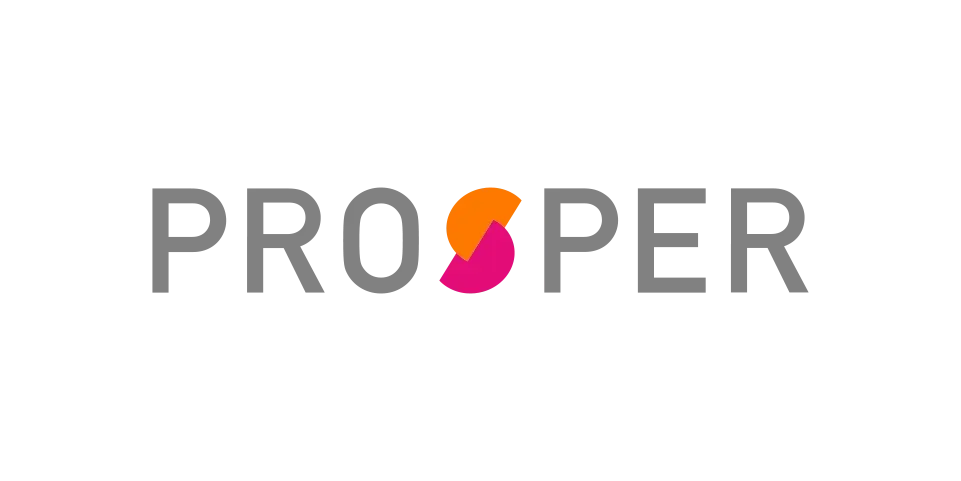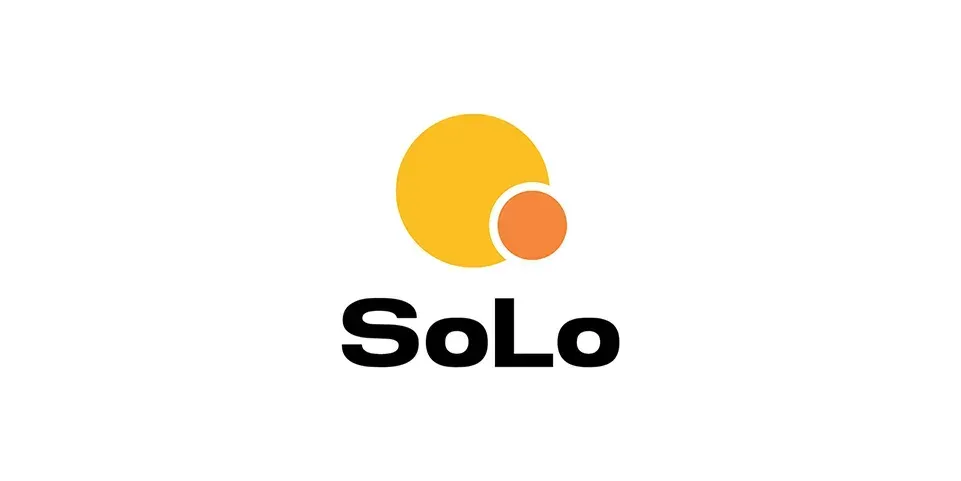Peer-to-peer lending apps act like marketplaces connecting borrowers directly to individual investors, offering a broad range of loan options for people with good to subpar credit.
Today, there are more ways than ever to borrow money, and finding the right loan can be tricky. One increasingly popular option is known as peer-to-peer (P2P) lending, where the traditional financial institution is cut out of the equation, and people borrow money directly from individual investors.
These P2P apps promise more competitive rates and a streamlined process, so it's no wonder that they're growing so fast: P2P lending was a $143.5 billion market in 2023, and is expected to leap to $190.2 billion by the end of 2024. Clearly, a lot of people are using peer to peer lending, and more are starting every day.
This guide examines the standout apps and lenders, breaks down the key considerations, highlights the opportunities and risks, and lays out the facts so you can confidently pick the app that serves your financial needs best.
Best Peer to Peer Lending Apps
With the vast number of P2P lending apps available, it can be overwhelming to choose one that fits your needs.
Here, we compare five of the top P2P lending apps in 2024. Each app provides distinct advantages and features for borrowers seeking loans through peer-to-peer platforms.
1. Prosper For Loans $2,000 - $50,000

- The Prosper platform is widely regarded as a leading P2P lending platform for Fair and Good-credit borrowers. It competes closely with LendingClub, providing similar APRs, fees, and repayment terms.
- In addition to peer-to-peer-funded loans, Prosper also offers other products like a credit card, home equity loans, and small business loans.
- Prosper has a Trustpilot score of Excellent, with over 12,000 reviews.
Read our full Prosper review
2. LendingClub For Loans Up To $40,000

- LendingClub offers personal loans aimed for a wide variety of goals. However, their primary focus is debt consolidation: credit card consolidation loans, balance transfer loans, and debt consolidation loans.
- If you choose, LendingClub can oversee disbursement of your personal loan to your other creditors if your goal is debt consolidation. This could help streamline the process for you.
- Besides personal loans, LendingClub also offers checking and savings bank accounts.
- The company has a Trustpilot score of Excellent, with over 5,000 reviews.
3. Lenme mobile app for loans up to $5,000

- Borrowers can request a loan in just minutes by using an in-app identity verification tool and linking their bank account. The identity tool will assess your credit score, banking data, income, and payment history among other datapoints.
- Lenme is built for borrowers with Fair or bad credit scores.
- If you are looking to lend money to someone else, Lenme makers it really easy as well. It creates a dashboard of potential borrowers and allows you to pick and choose based on their profiles, and makes collecting money and transferring to a bank account a seamless process.
- Online reviews of Lenme are mixed. It has a Trustpilot score of Average, with some borrowers expressing frustration with the identity verification process, and some investors expressing frustration with payment defaults.
4. SoLo Funds for Small, Fast Loans up to $575

- SoLo Funds is a platform that promotes community-based financial assistance, ensuring fairness and transparency for both borrowers and lenders.
- It offers diverse loan options with 0% interest rates, making it an exceptional and economical lending alternative. Borrowers are expected to pay the loan back within 35 days.
- Borrowers can "Tip" the person who is lending them money instead of paying interest as a way to thank the lender for helping them out.
- SoLo Funds has a negative score on Trustpilot, which is due to the fact that lenders claim a poor repayment record from borrowers on the platform.
5. Funding Circle For Small Business Loans From $25,000-$500,000

- Funding Circle is a leading P2P lender for small businesses, offering customized options and attractive interest rates.
- Their requirements to secure a loan include having been in business for two years or more, with annual revenue of $50,000 or more. In addition, the business borrower must have a minimum credit score of 620.
- A unique aspect of the Funding Circle experience is that borrowers are connected to a dedicated Account Manager who will be their guide in the process from start to finish.
- Funding Circle has an excellent track record and customer satisfaction scores, with a score of Excellent on Trustpilot and over 14,000 reviews.
Read more on peer-to-peer business loans
Understanding Peer to Peer Lending Apps

In the world of P2P lending, obtaining a loan is as effortless as using your mobile device. Technology bridges the gap between borrowers and online lenders, which can include both individual and institutional investors. This alternative method, which eliminates the need for traditional institutions like banks or credit unions, offers a more personalized experience with fewer restrictions and potentially lower interest rates compared to standard loans.
For those with bad credit, P2P lenders may offer more flexibility in their loan requirements, which can be a major advantage.
Another benefit of peer-to-peer loans is the ability to customize both repayment schedule and loan terms based on individual needs. This makes them an adaptable solution for managing personal finance matters effectively.
Like any other form of borrowing money, there are risks associated with P2P platforms. These may involve potential defaults by borrowers or security concerns regarding loan funds.
Choosing the Right Peer to Peer Loan

When considering a P2P loan, it is important to carefully assess several factors such as interest rates, fees, loan terms and a minimum credit score requirement.
It should be noted that there is no one-size-fits-all solution when it comes to P2P loans. Each borrower has different needs and preferences, and a wide variety of peer-to-peer investors can offer just as many different kinds of loans.
Taking time to compare various platforms can help identify the most favorable terms for your specific financial situation and objectives. Keep in mind that not all platforms offer identical options; each may have its own unique features based on its target market or niche audience.
Criteria for Selecting a P2P App
When selecting a peer-to-peer (P2P) application, it is crucial to consider elements that will impact your experience and finances. This includes:
- User-friendliness of the platform. Many P2P platforms are well-designed and built for a digital, mobile world – but it is still worth confirming before committing.
- Customer service. Not all companies are created equal. Some have strong "live" customer support like chat and phone options if you have questions or run into issues. Others may only have email support, which can make getting help a longer process.
- Reputation. As with any lender, it is important to know who you are doing business with. Many P2P apps enjoy highly positive user reviews and ratings on sites like Trustpilot and are accredited by the Better Business Bureau. However, it is important to double-check that the app you are considering has a track record you can be confident in.
- Loan sizes available. Keep in mind that some P2P apps are designed for smaller loans in the $2,000 and under range, better suited if you are looking for a cash advance or similar short-term need. Other apps are meant for larger loans up to $50,000, intended for big ticket items like home improvement projects, medical expenses, or credit card debt consolidation. For example, while Prosper’s maximum loan amount ranges from $2,000 to $50,000, most other P2P lenders typically offer a limit of around $40,000.
- Loan rates and terms. Of course, one of the most important aspects to consider is how high will your interest rate be, and whether there are other fees associated with taking out a P2P loan. These figures will vary depending on which app you choose to work with and what your borrowing profile looks like. It is essential to secure the best possible rate and lowest fees (including origination fees), as they can greatly impact the overall expense of your loan. The origination fee, in particular, should be taken into consideration in order to minimize costs effectively.
How to Get Started with Peer to Peer Loan Apps
After selecting a P2P platform, the next step is to begin the application process. This involves providing personal details and meeting specific credit requirements in order to receive loan offers from individual investors.
While applying for P2P loans tends to be straightforward, it’s important to have all necessary information prepared beforehand in order for your approval process to go smoothly and quickly.
The Application Process
The process of applying for P2P loans involves several key stages, including:
- Providing basic personal details, such as name, address, and contact info
- Undergoing a soft credit check and potentially answering some simple questions to determine creditworthiness and risk level
- Submitting the loan application and potentially undergoing a hard credit check
- Receiving multiple loan offers instantly
- Choosing the most suitable offer from among the options provided.
This process gives borrowers the flexibility to select a loan agreement that meets their specific needs through an efficient and quick process in p2p lending platforms.
Meeting Credit Requirements
Although credit scores are still an important consideration for loan approval, P2P lenders take into account various other factors in order to assess a borrower’s creditworthiness comprehensively.
This means that even if your minimum credit score is fair or bad, you may still qualify for a loan by meeting the platform’s specified minimum requirement for both your credit score and other criteria.
Managing Your Loan Through a P2P App

After your loan is approved, you can start managing it using the P2P app. Many platforms offer features such as automatic payments and progress tracking to assist with financial management and ensure a smooth borrowing process.
Enrolling in automatic payments is a convenient method to guarantee prompt payment of your loan every month, preventing late fees and preserving a positive credit score. In some P2P applications, there may even be an option to adjust the payment date for added flexibility in managing your loan.
Monitoring Loan Progress
Aside from facilitating payments, P2P apps also provide features such as:
- Real-time monitoring of your loan’s progress
- Keeping track of your remaining balance
- Viewing your payment record
- Option to make extra payments and pay off the loan earlier if desired
Alternatives to Peer-to-Peer Lending
While P2P lending apps offer many benefits, there are other alternatives for borrowing. These include loans from other lending platforms such as SoFi, Best Egg, Upstart, and Splash Financial. Each of these options provides different loan choices and features to give borrowers more variety when considering their financial needs.
Avant
Avant is an online lending institution with a strong track record since 2012. Unlike some other institutions, Avant allows joint borrowing for their personal loans, which range from $2,000-$35,000. This means that even if the applicant's credit is Fair or subprime, someone can co-sign on their loan and they are likelier to be approved.
Best Egg
A widely used alternative to P2P lending apps, Best Egg offers personal loans with favorable interest rates and customizable repayment options. Its user-friendly application process and speedy approval make it a convenient choice for individuals in need of prompt financial assistance.
Happy Money
Happy Money, formerly known as Payoff, is a lender that focuses specifically on loans for credit card debt consolidation. This is why they call their loan product "The Payoff Loan™. Most borrowers who secure a loan from Happy Money have Good to Fair credit.
Splash Financial
With a foundation in refinancing student loans, Splash Financial provides attractive interest rates and customizable repayment plans. Whether you’re a recent college graduate or an experienced worker, this company can assist in managing your debt from student loans and consolidating debt with personal loans.
SoFi Personal Loans
SoFi set itself apart by placing a strong emphasis on refinancing student loans, but has expanded to include a range of different loan products that provide borrowers with access to low rate, no fee personal loans up to $100k. SoFi presents as a reliable option for individuals seeking to refinance their existing student debt or take out a loan for a different purpose.
Upstart for Thin Credit and Fixed Rates
For individuals with a thin or limited credit history, Upstart is an excellent selection due to its unique approach in approving loans. Unlike traditional lenders that rely solely on credit scores, Upstart utilizes advanced AI technology to consider other factors for loan evaluation. This comprehensive assessment makes it an ideal choice for those without extensive credit experience.
Read our full Upstart review
Borrowing Responsibly
Peer-to-peer lending applications offer a convenient way to borrow money, but it is important to use them wisely. Effective strategies for borrowing through P2P apps involve combining high-interest debts and preparing for significant financial obligations such as major expenses.
- Consolidating Debt with P2P Loans: An effective approach for utilizing P2P loans is to merge high-interest debt. This involves consolidating multiple balances into a single loan that may have a lower interest rate, simplifying your monthly payments and potentially resulting in savings over the long term.
- Planning for Major Expenses: A wise approach is to utilize P2P loans for preparing and budgeting major expenses. It could be a large-scale home improvement project or unforeseen medical costs, as a P2P loan can offer the necessary funds at an attractive interest rate.
The Bottom Line
- P2P lending apps connect borrowers directly with lenders, often providing more flexible terms and potentially lower interest rates than traditional loans, but come with the risks of less established companies and borrowers defaulting.
- Key considerations when selecting a P2P lending app include interest rates, fees, loan terms, and the platform’s reputation; it’s crucial to compare loan cost to find favorable terms tailored to individual financial situations.
- The application process for P2P loans involves providing personal information and meeting credit requirements, while managing the loan includes setting up automatic payments and monitoring progress through the app.
Frequently Asked Questions
What is a peer-to-peer loan?
A P2P loan is a type of borrowing where investors, both individual and institutional, provide the funds instead of traditional financial institutions like banks or credit unions. The connection between borrowers and lenders happens through an internet-based platform which enables a more efficient process for lending.
Which is the best peer-to-peer app?
Prosper is considered the best overall peer-to-peer lending platform, offering potential borrowers a variety of loan options depending on their credit profile. However, a number of other P2P apps have different strengths as well, including lending terms, customer experience, and funding speeds. It is worth researching the top apps to see which one is best for your needs.
Are peer-to-peer loans safe?
P2P lending is considered a safe option for both borrowers and lenders. The platforms utilize strong verification procedures, secure transactions, and reliable authentication methods to ensure the protection of its users. However, like any industry, not all P2P lenders are created equal, so consumers should research any lender they are interested in before submitting an application.
What are the pros and cons to peer-to-peer loans?
Peer-to-peer lending has its share of benefits, such as the possibility of lower interest rates, a simple application procedure, and quick approval times. Nevertheless, there are also drawbacks to consider like increased risk for lenders since peer loans are typically unsecured, and potentially higher borrowing costs for individuals with bad credit.
Is peer-to-peer lending still available?
Yes, peer-to-peer lending is still available through several online platforms that connect borrowers with investors, providing personalized and streamlined application processes with faster funding speeds compared to traditional loans.
What credit score do you need for peer-to-peer lending?
You generally need a credit score of at least 600 for peer-to-peer lending, although some lenders, like Lenme and Avant, may accept lower scores. P2P lending offers a range of loan terms for different credit profiles so it is worth exploring.
Can you get a P2P loan with bad credit?
Obtaining a P2P loan with poor credit is feasible as many peer-to-peer lenders have more lenient lending criteria compared to traditional banks. For those with bad credit, start by checking out Lenme, Avant, and SoLo as possible P2P lending options.
What are the advantages of peer-to-peer loans?
A promising aspect of peer-to-peer loans is the potential for benefits such as reduced interest rates, a simplified application process, potentially more lenient lending criteria than traditional banks, and prompt funding. These advantages make them an appealing choice for individuals in search of financial assistance.






